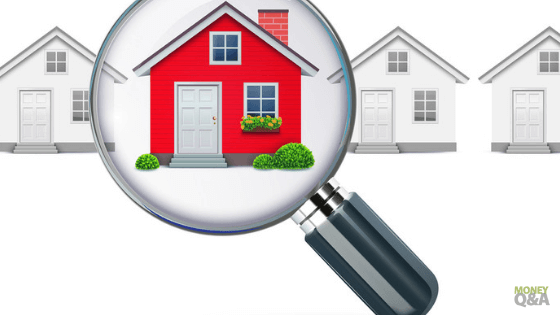Most financial wisdom you come across these days strongly advocates for homeownership, but is this really the best financial path forward for some people? What about renting vs buying?
We have no problem renting movies, leasing cars, staying in vacation rental homes, and even clothing (thanks to those personalized style subscription services that consumers are flocking to in order to keep their wardrobe fresh) – why do we always assume that owning a home would be a better option than renting?
Of course, there are tons of benefits to owning your own home, the most important of which being that you don’t have monthly mortgage payments once your loan is paid off in 15-30 years. Whereas renters will continue paying rent to a landlord until the day they die.
Renting vs Buying a Home
But renting shouldn’t be viewed as an inherently bad financial move. Here are some long-term instances where being a tenant might make more sense for you than being a homeowner.
Mortgage Payments Are Out of Your Budget
If you’re in debt, living paycheck to paycheck and/or residing in a high cost of living area with limited housing availability, then renting a place to live might be your only option. Fortunately, this could be a blessing in disguise.
Renters generally aren’t responsible for normal wear and tear (carpeting, wall paint, plumbing, etc.) and when something accidentally breaks, it’s usually the landlord’s financial obligation to hire someone to repair the damage.
Since homeownership involves so much more than just the mortgage payments – and costly private mortgage insurance. If you haven’t reached 20% equity in your home yet, you could actually be saving money by renting.
This is especially true for anyone with a credit score that’s lower than 700-850 because you’ll be paying substantially more interest on a mortgage loan if you don’t have excellent credit (and if you take the standard deduction, you won’t be able to deduct that interest from your taxes anyway).

You’re Constantly Moving
Another common scenario where renting makes a lot more financial sense than owning a home involves people who are moving every few years. Your primary residence is really only worth the expense if you treat it as a long-term investment; selling it within a few years of purchasing it means you might not recoup your closing costs and other costs associated with home-buying.
Trying to sell a home while moving to a new area – whether for work or simply a change of scenery – can be a stressful experience, especially if the real estate market is in the dumps and/or the property isn’t selling as quickly as you need it to. Breaking a lease to move isn’t cheap either, but it pales in comparison to the legal and financial complications of selling a home.
Property Taxes Are Too High
Even if you have enough cash saved up for a down payment on a home, would it really be worth the property taxes you’re responsible for as a homeowner? For instance, the highest property tax rates in the country range from 1.99% to 2.16% (New Jersey, Illinois, and New Hampshire being the states with the highest effective property tax rates).
This represents an enormous financial burden on homeowners, especially when you add in homeowners’ insurance, repairs, renovations, utilities and other expenses associated with homeownership. While renters are justifiably concerned about annual rent increases, they have far fewer financial obligations to worry about in comparison to homeowners and landlords.
Get Higher Returns on Investment Elsewhere
Speaking of landlords, wouldn’t it be great if you could invest money in a rental property and make money from your own tenants? As strange as this may seem, owning a rental property instead of your own residence makes much more financial sense because you can write off many expenses on your taxes (loan interest, depreciation, repairs, maintenance, insurance, etc.) that you wouldn’t otherwise qualify for if it were just your own primary residence.
After all, the place you live in is generally not considered an investment; you’re not making money from it and it’s actually costing you quite a bit of money to maintain. Meanwhile, an apartment, condo or house you rent out to someone else can provide an excellent passive income without many of the downsides associated with owning a home that you and your family occupied.
Renting vs Buying – Should I Buy a Home or Rent?
The answer to this largely depends on your lifestyle. If you have a job requiring frequent relocations to new offices or you’d simply rather get higher returns on your investment in the short run by investing in rental properties (or just putting that money in your investment accounts), then renting would likely be a better option.
On the other hand, if you plan on staying in the same place for 10+ years, then buying a home might be preferable to dealing with annual rent increases (especially when you retire and start living on a fixed income).
What do you think about renting vs buying? Should some people rent a home forever instead of buying a home?
